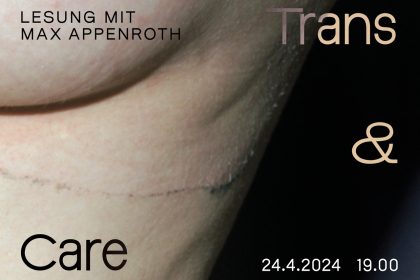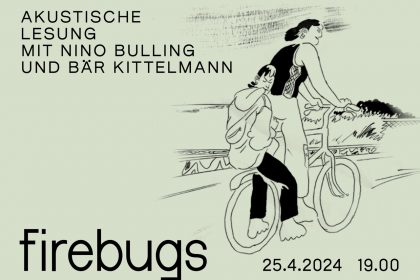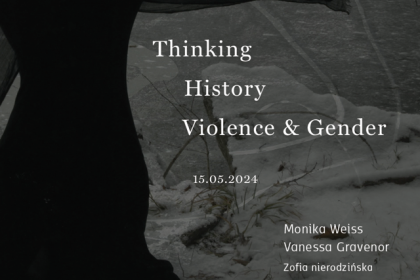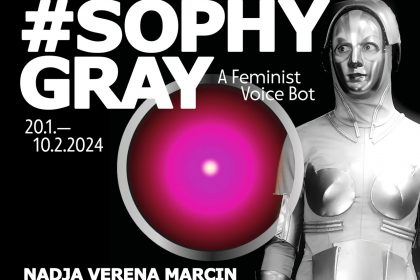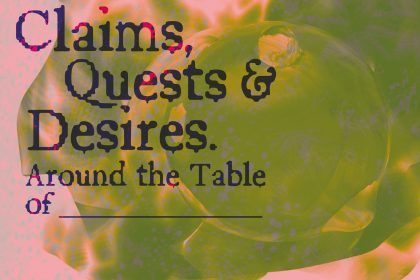Feminist Spaces in Art and Politics. An intergenerational Talk.
Panel Discussion with:
Sharon Adler, editor of AVIVA-Berlin – Online Magazine for women, photographer, executive board foundation ZURÜCKGEBEN – Förderung jüdischer Frauen in Kunst und Wissenschaft
Madeleine Bernstorff, film curator, filmmaker, author, lecturer
Teena Lange, curator for performance art, artistic director Grüntaler9, member of Rat für die Künste
Sandrine Micossé-Aikins, curator, art historian, activist, director Kubinaut – Berliner Projektfonds kulturelle Bildung
Moderator: Dr. Marie-Anne Kohl (Universität Bayreuth, co-director alpha nova & galerie futura 2012-2015)
The intergenerational conversation pursues the question of how feminist concerns and positioning can be made productive for artistic work on new conceptions of the social, how we live, or the subject, how to be able to do so in the future, and which (re)presentational spaces need to be created for this. Feminist art production has been closely related to political positioning. The predominant confrontations with body, sexuality, identity, and female experience of the 1970s have diversified and new subjects have come into the mix. Nowadays, questions about the interaction of different identities and representational practices are often debated, as well as the experience of inequality, exclusion, and the contemplation of powerful structures, whose part is each individual. In the panel we want to discuss different perspectives that thematize the current and future self-image and motivations of feminist art production vis-a-vis their subject matter, visibilities, and conditions. In the face of profound global crises, is there a growing need to position oneself in world affairs? What could feminist situatedness amount to in this regard and where do feminisms find their indentity-confering questions beyond the topics of gender identity and justice. What different possibilities for feminist questioning in art do cooperations with institutional, commercial places or rooms in the free scenes offer, which includes virtual platforms? The question about (re)presentational forms and spaces also requires a critical examination of who the actors in the respective spaces are and the different privileges and resources they have at their disposal.
In cooperation with Kunstraum Kreuzberg/Bethanien
The talk is part of the program of WELCOME TO FUTURISTAN. 30 years of galerie futura



